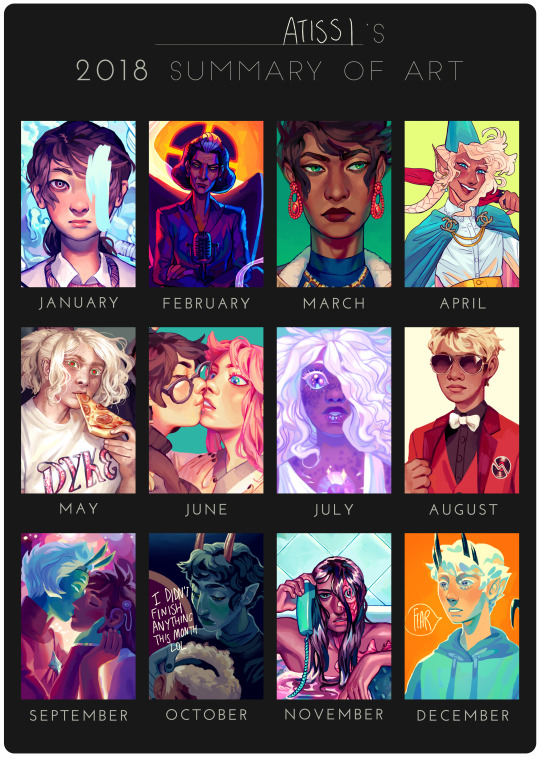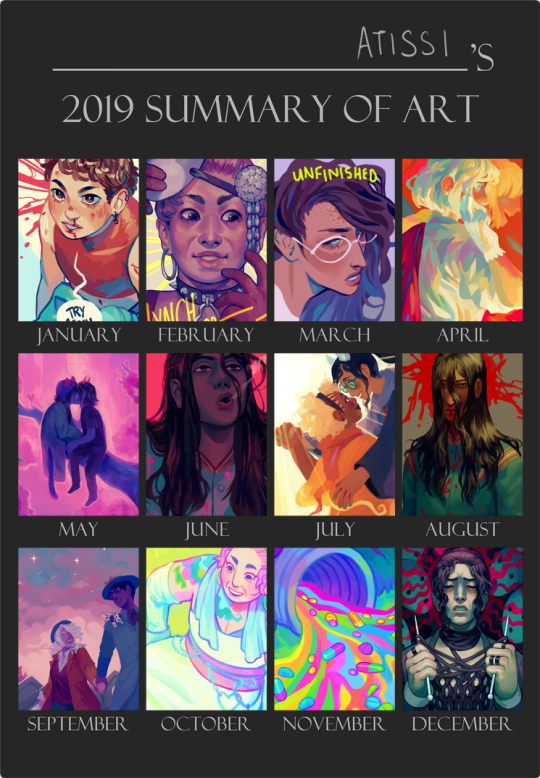#online surveillance
Text
#lmao#lol#tiktok#national security#chinese spy#byteDance#espionage#data privacy#cybersecurity#congressional hearings#china-us relations#social media#misinformation#manipulation#intelligence agencies#hypothetical threat#chinese government#user data privacy#tiktok ownership#foreign influence#online surveillance#misinformation campaign
60 notes
·
View notes
Link
#facebook#social media#Mark Zuckerberg#Science and Technology#meta#data mining#online surveillance#big brother#mass surveillance#forsakebook#suckerberg#delete facebook#delete instagram#delete social media#hospitals#health data
6 notes
·
View notes
Text
So, this is scary as hell, Google's developing tech to scan your face as a form of age identification, and it's yet another reason why we need to stop the various bad internet bills like EARN IT, STOP CSAM, and especially KOSA.
Because, that's why they're doing this, and that sort of invasive face scanning is what everybody's been warning people they're going to do if they pass, so the fact they're running up to push it through should alarm everyone.
And, as of this posting on 12/27/2023, it's been noted that Chuck Schumer wants to try and start pushing these bills through as soon as the new year starts, and some whisperings have been made even of all these bad bills being merged under STOP CSAM into one deadly super-bill.
So, if you live in the US call your senators, and even if you don't please boost this, we need to stop this now.
#censorship#online censorship#internet censorship#surveilance#privacy#facial recognition#signal boost
6K notes
·
View notes
Text
Privacy first

The internet is embroiled in a vicious polycrisis: child safety, surveillance, discrimination, disinformation, polarization, monopoly, journalism collapse – not only have we failed to agree on what to do about these, there's not even a consensus that all of these are problems.
But in a new whitepaper, my EFF colleagues Corynne McSherry, Mario Trujillo, Cindy Cohn and Thorin Klosowski advance an exciting proposal that slices cleanly through this Gordian knot, which they call "Privacy First":
https://www.eff.org/wp/privacy-first-better-way-address-online-harms
Here's the "Privacy First" pitch: whatever is going on with all of the problems of the internet, all of these problems are made worse by commercial surveillance.
Worried your kid is being made miserable through targeted ads? No surveillance, no targeting.
Worried your uncle was turned into a Qanon by targeted disinformation? No surveillance, no targeting. Worried that racialized people are being targeted for discriminatory hiring or lending by algorithms? No surveillance, no targeting.
Worried that nation-state actors are exploiting surveillance data to attack elections, politicians, or civil servants? No surveillance, no surveillance data.
Worried that AI is being trained on your personal data? No surveillance, no training data.
Worried that the news is being killed by monopolists who exploit the advantage conferred by surveillance ads to cream 51% off every ad-dollar? No surveillance, no surveillance ads.
Worried that social media giants maintain their monopolies by filling up commercial moats with surveillance data? No surveillance, no surveillance moat.
The fact that commercial surveillance hurts so many groups of people in so many ways is terrible, of course, but it's also an amazing opportunity. Thus far, the individual constituencies for, say, saving the news or protecting kids have not been sufficient to change the way these big platforms work. But when you add up all the groups whose most urgent cause would be significantly improved by comprehensive federal privacy law, vigorously enforced, you get an unstoppable coalition.
America is decades behind on privacy. The last really big, broadly applicable privacy law we passed was a law banning video-store clerks from leaking your porn-rental habits to the press (Congress was worried about their own rental histories after a Supreme Court nominee's movie habits were published in the Washington City Paper):
https://en.wikipedia.org/wiki/Video_Privacy_Protection_Act
In the decades since, we've gotten laws that poke around the edges of privacy, like HIPAA (for health) and COPPA (data on under-13s). Both laws are riddled with loopholes and neither is vigorously enforced:
https://pluralistic.net/2023/04/09/how-to-make-a-child-safe-tiktok/
Privacy First starts with the idea of passing a fit-for-purpose, 21st century privacy law with real enforcement teeth (a private right of action, which lets contingency lawyers sue on your behalf for a share of the winnings):
https://www.eff.org/deeplinks/2022/07/americans-deserve-more-current-american-data-privacy-protection-act
Here's what should be in that law:
A ban on surveillance advertising:
https://www.eff.org/deeplinks/2022/03/ban-online-behavioral-advertising
Data minimization: a prohibition on collecting or processing your data beyond what is strictly necessary to deliver the service you're seeking.
Strong opt-in: None of the consent theater click-throughs we suffer through today. If you don't give informed, voluntary, specific opt-in consent, the service can't collect your data. Ignoring a cookie click-through is not consent, so you can just bypass popups and know you won't be spied on.
No preemption. The commercial surveillance industry hates strong state privacy laws like the Illinois biometrics law, and they are hoping that a federal law will pre-empt all those state laws. Federal privacy law should be the floor on privacy nationwide – not the ceiling:
https://www.eff.org/deeplinks/2022/07/federal-preemption-state-privacy-law-hurts-everyone
No arbitration. Your right to sue for violations of your privacy shouldn't be waivable in a clickthrough agreement:
https://www.eff.org/deeplinks/2022/04/stop-forced-arbitration-data-privacy-legislation
No "pay for privacy." Privacy is not a luxury good. Everyone deserves privacy, and the people who can least afford to buy private alternatives are most vulnerable to privacy abuses:
https://www.eff.org/deeplinks/2020/10/why-getting-paid-your-data-bad-deal
No tricks. Getting "consent" with confusing UIs and tiny fine print doesn't count:
https://www.eff.org/deeplinks/2019/02/designing-welcome-mats-invite-user-privacy-0
A Privacy First approach doesn't merely help all the people harmed by surveillance, it also prevents the collateral damage that today's leading proposals create. For example, laws requiring services to force their users to prove their age ("to protect the kids") are a privacy nightmare. They're also unconstitutional and keep getting struck down.
A better way to improve the kid safety of the internet is to ban surveillance. A surveillance ban doesn't have the foreseeable abuses of a law like KOSA (the Kids Online Safety Act), like bans on information about trans healthcare, medication abortions, or banned books:
https://www.eff.org/deeplinks/2023/05/kids-online-safety-act-still-huge-danger-our-rights-online
When it comes to the news, banning surveillance advertising would pave the way for a shift to contextual ads (ads based on what you're looking at, not who you are). That switch would change the balance of power between news organizations and tech platforms – no media company will ever know as much about their readers as Google or Facebook do, but no tech company will ever know as much about a news outlet's content as the publisher does:
https://www.eff.org/deeplinks/2023/05/save-news-we-must-ban-surveillance-advertising
This is a much better approach than the profit-sharing arrangements that are being trialed in Australia, Canada and France (these are sometimes called "News Bargaining Codes" or "Link Taxes"). Funding the news by guaranteeing it a share of Big Tech's profits makes the news into partisans for that profit – not the Big Tech watchdogs we need them to be. When Torstar, Canada's largest news publisher, struck a profit-sharing deal with Google, they killed their longrunning, excellent investigative "Defanging Big Tech" series.
A privacy law would also protect access to healthcare, especially in the post-Roe era, when Big Tech surveillance data is being used to target people who visit abortion clinics or secure medication abortions. It would end the practice of employers forcing workers to wear health-monitoring gadget. This is characterized as a "voluntary" way to get a "discount" on health insurance – but in practice, it's a way of punishing workers who refuse to let their bosses know about their sleep, fertility, and movements.
A privacy law would protect marginalized people from all kinds of digital discrimination, from unfair hiring to unfair lending to unfair renting. The commercial surveillance industry shovels endless quantities of our personal information into the furnaces that fuel these practices. A privacy law shuts off the fuel supply:
https://www.eff.org/deeplinks/2023/04/digital-privacy-legislation-civil-rights-legislation
There are plenty of ways that AI will make our lives worse, but copyright won't fix it. For issues of labor exploitation (especially by creative workers), the answer lies in labor law:
https://pluralistic.net/2023/10/01/how-the-writers-guild-sunk-ais-ship/
And for many of AI's other harms, a muscular privacy law would starve AI of some of its most potentially toxic training data:
https://www.businessinsider.com/tech-updated-terms-to-use-customer-data-to-train-ai-2023-9
Meanwhile, if you're worried about foreign governments targeting Americans – officials, military, or just plain folks – a privacy law would cut off one of their most prolific and damaging source of information. All those lawmakers trying to ban Tiktok because it's a surveillance tool? What about banning surveillance, instead?
Monopolies and surveillance go together like peanut butter and chocolate. Some of the biggest tech empires were built on mountains of nonconsensually harvested private data – and they use that data to defend their monopolies. Legal privacy guarantees are a necessary precursor to data portability and interoperability:
https://www.eff.org/wp/interoperability-and-privacy
Once we are guaranteed a right to privacy, lawmakers and regulators can order tech giants to tear down their walled gardens, rather than relying on tech companies to (selectively) defend our privacy:
https://pluralistic.net/2022/11/14/luxury-surveillance/#liar-liar
The point here isn't that privacy fixes all the internet's woes. The policy is "privacy first," not "just privacy." When it comes to making a new, good internet, there's plenty of room for labor law, civil rights legislation, antitrust, and other legal regimes. But privacy has the biggest constituency, gets us the most bang for the buck, and has the fewest harmful side-effects. It's a policy we can all agree on, even if we don't agree on much else. It's a coalition in potentia that would be unstoppable in reality. Privacy first! Then – everything else!

If you'd like an essay-formatted version of this post to read or share, here's a link to it on pluralistic.net, my surveillance-free, ad-free, tracker-free blog:
https://pluralistic.net/2023/12/06/privacy-first/#but-not-just-privacy

Image:
Cryteria (modified)
https://commons.wikimedia.org/wiki/File:HAL9000.svg
CC BY 3.0
https://creativecommons.org/licenses/by/3.0/deed.en
#pluralistic#privacy first#eff#privacy#surveillance#surveillance advertising#cold war 2.0#tiktok#saving the news from big tech#competition#interoperability#interop#online harms#ai#digital discrimination#discrimination#health care#hippa#medical privacy
435 notes
·
View notes
Text
“Stop Internet Censorship” Master List
The following is a master list for all of the major Internet Censorship and Surveillance Bills between 2022 to 2023, with the most major bills that are currently active posted below. They will each link to the Tumblr posts that I have made in the past related to them, with all of the relevant information associated.
This was made because I feel people need to get a sense for just how interconnected they really are, how much Congress and third parties are trying to desperately gain full control and access to our information and silencing anything they don’t want to see and hear, and having a centralized hub of information for them will make it easier for people to find them.
The Major Bills:
EARN IT Act: 2022 version of EARN IT Act
2023 version of EARN IT Act (No text yet, but it’s pretending to be about preventing child abuse online this time)
Enigma2Me Post on EARN IT Act
fullhalalalchemist Post on EARN IT
Condemnation of the EARN IT Act 2020 Coalition Letter
STOP EARN IT Act LINKTREE
Engadget: EARN IT Act reintroduced for the Third Time
------
Kids Online Safety Act: Current Draft of 2023 KOSA bill
Enigma2Me Post on Kids Online Safety Act
STOP KOSA LinkTree
------
RESTRICT Act: Read Bill Here.
Enigma2Me Post On RESTRICT Act
LoganGalbraith’s Post on RESTRICT Act
Truthout Article 4/02/2023: Restrict Act Critics Call the Far-Reaching “TikTok Ban” Bill a “Patriot Act 2.0”
------
STOP CSAM Act:
Electronic Frontier Foundation: Take Action on STOP CSAM/EARN IT
TechDirt Post Against STOP CSAM Act
------
So if you’ve seen the above, you’re probably asking: What can we do about it?
1) Spread the Word online!
Twitter Hashtags
For Earn It: #EARNITAct, #STOPTheEARNITAct, #NoEarnItAct
For KOSA: #KOSA, #KidsOnlineSafetyAct, STOPKOSA
For RESTRICTAct: #RESTRICTAct, #STOPRESTRICTAct
2) PLEASE call your Senators.
Find your 2 senators numbers here. Fax them, email them. Tell them they MUST oppose this bill. Calmly make it clear to them that if they support this bill, then you will vote for someone else who doesn’t go along with this blatant act of authoritarian intent.
3) CONTACT any major human rights and cybersecurity related organizations and let them know about this bill. Get this out to any local news groups that you can.
The following Google Doc contains a list of every major organization we could think of to contact, and will be updated as we find more allies in the fight against censorship and surveillance.
ANTI-CENSORSHIP MASTER LIST
Also Contact the organizations on these 2020 letters to get them to publicly speak out against the EARN IT Act like they did back then.
But for those who want to have official organizations to work with (and who usually have petitions except TechDirt), the following usually are up to date on info:
Electronic Frontier Foundation
Fight For the Future
Techdirt
#RESTRICT Act#EARN IT Act#Stop Kids Online Safety Act#stop internet censorship#stop restrict act#stop earn it act#FUCK BLUMENTHAL#fuck surveillance#fuck censorship
601 notes
·
View notes
Text
The whole “you must publicly disclose every emotional vulnerability you’ve ever had and every trauma you’ve ever experienced as a minimum buy-in for participating in social life” thing kind of makes sense on platforms that want to strongly link your online identity with your real identity, in a horrible, surveillance-culture-poisoned, mutually-assured-destruction sort of way, but it’s just plain senseless on deliberately anonymised platforms like Tumblr. When lying about yourself is trivial and maintaining multiple disconnected identities – including disposable “burner” identities – is both easy and encouraged, going full disclosure is painting a target on your back for no reason. Literally anybody who’s so inclined can use that stuff against you without exposing themselves at all.
2K notes
·
View notes
Text
Are you a young person fighting back against bad bills like KOSA? Become an EFF member at a new, discounted Neon membership level specifically for you--stickers included!
Congress has resurrected the Kids Online Safety Act (KOSA), a bill that would increase surveillance and restrict access to information in the name of protecting children online. KOSA was introduced in 2022 but failed to gain traction, and today its authors, Sens. Richard Blumenthal (D-CT) and Marsha Blackburn (R-TN), have reintroduced it with slight modifications. Though some of these changes were made in response to over 100 civil society organizations and LGBTQ+ rights groups’ criticisms of the bill, its latest version is still troubling. Today’s version of KOSA would still require surveillance of anyone sixteen and under. It would put the tools of censorship in the hands of state attorneys general, and would greatly endanger the rights, and safety, of young people online. And KOSA’s burdens will affect adults, too, who will likely face hurdles to accessing legal content online as a result of the bill.
TAKE ACTION
#KOSA#call to action#collective action#petition#internet#online privacy#surveillance#privacy#censorship
114 notes
·
View notes
Text
The RCMP did not follow the Privacy Act and its own guidelines when it chose web investigation technology, concludes a special report by Canada’s privacy commissioner, Philippe Dufresne, presented to Parliament on Thursday.
The investigation was spurred by Tyee reporting in 2019 and 2020, which revealed the RCMP’s Tactical Internet Operational Support unit used tools that can circumvent the privacy and security of Canadians online.
The previous privacy commissioner, after an earlier investigation, raised similar concerns about the RCMP’s use of the facial recognition service Clearview AI, and the force at the time said it would address those issues with a new screening program it called the National Technology Onboarding Program.
Continue Reading
Tagging @politicsofcanada
#cdnpoli#canada#canadian politics#canadian news#rcmp#policing#police#surveillance#technology#privacy#online privacy
66 notes
·
View notes
Text

"Lotta important shit goes in the chest cavity, extra padding's a given." Nothing to see there.

"Just looks better on some bots than others." Unless there is.
23 notes
·
View notes
Text
The phones in our hands are an incredible asset as well as a devastating liability. We need to reassess our relationship with technology and be more intentional with how we approach its use. The access to information they offer is not one way—we are accessed too.
24 notes
·
View notes
Text
not to get on my high horse about theater and plays but like. earnestly begging people to read more plays or go to support and watch more theater.
i swear if people online read a lil suzan-lori parks or caryl churchill instead of starting discourse they’d be changed!!!
#saw a production of Fucking A by Suzan-Lori Parks tonight and now i’m desperate to get my hands on a script#really think the girls online should read this one!!!#this play is ab so much and is so brilliant but one aspect of it is puritan culture and surveillance#a character has a literal like 7-10 minute monologue rambling about all the crimes his daughter comitted to end up in prison#most of them are not crimes and get progressively more absurd#I THINK THE GIRLS SHOULD READ IT MAYBE THEN THEYD GET IT!!
16 notes
·
View notes
Text
KOSA is Coming
Wrote up a post on Cohost to help get the word out about KOSA. Instead of going through the trouble of reformatting it to post here, have a link:
#Inky Bytes#KOSA#Kids Online Safety Act#censorship#surveillance#us politics#spread the word flip the bird#take care of each other#...I just realized this bill will ACTUALLY kill VCL... 😭
11 notes
·
View notes
Link
#social media#FACEBOOK#Mark Zuckerberg#Science and Technology#delete facebook#delete social media#forsakebook#suckerberg#facebook in the world#meta#online surveillance
4 notes
·
View notes
Link
TikTok kept tabs on users who watched clips that were tagged under topics such as “LGBT,” short for lesbian, gay, bisexual and transgender, and monitored them for at least a year.
…
Social media companies are known to maintain user profiles in order to offer them personalized ads. However, social media platforms are advised not to collect sensitive data like sexual orientation as it has the potential to make users into targets.
lists… tiktok and every other corporation
#queer safety#queer privacy#privacy#privacy policy#social media#tiktok#surveillance#gay#lesbian#bi#trans#queer#online safety#lgbt#lgbtq#lgbqti#data safety#marketing#exploitation#fascism
27 notes
·
View notes
Link
Go back to the top of this article and reread that transcript of Rep. Buddy Carter grilling TikTok CEO Shou Zi Chew. Now, Carter is a dunderhead, but he’s dunderheaded in a way that illuminates just how bad COPPA enforcement is, and has been, for 25 long years.
Carter thinks that TikTok is using biometric features to enforce COPPA. He imagines that TikTok is doing some kind of high-tech phrenology to make sure that every user is over 13 (“I find that [you aren’t capturing facial images] hard to believe. It is our understanding that they’re looking at the eyes. How do you determine what age they are then?”).
Chew corrects the Congressdunderhead from Georgia, explaining that TikTok uses “age-gating”: “when you ask the user what age they are.”
That is the industry-wide practice for enforcing COPPA: every user is presented with a tick-box that says “I am over 13.” If they tick that box, the company claims it has satisfied the requirement not to spy on kids.
But if COPPA were meaningfully enforced, companies would simply have to stop spying on everyone, because there are no efficient ways to verify the age of users at the scale needed for general operation of a website.
-How To Make a Child-Safe TikTok: Have you tried not spying on kids?
#privacy#corruption#coppa#Children’s Online Privacy Protection Act#gdpr#general data protection regulation#iab#tiktok#rep buddy carter#Shou Chew#commercial surveillance#ad targeting#ads#ad-tech#cold war 2.0#sinophobia#ireland#eu#european federalism#corporate crime jurisdictions#defund the (corporate) police#age-gating
456 notes
·
View notes
Photo







another year of progress! since my birthday is right before the new year, i always associate my personal growth with my previous age. i think i’m happy with how I grew as a 20-year-old...more than just improving my anatomy and style, i’m learning to be more comfortable existing outside of my own head. i like looking at other people’s art summaries, so i thought i’d post mine (even if i’m pretty fucking embarrassed to look at my old pieces.......lol)
in 2023, i want to do more environments, get more comfortable with painting different body types, post my writing, and feel less awkward talking about myself. along with my academic and career goals of course :P
here’s to the new year! 🎉
#beepbeep.txt#idk i have such a complex about people not knowing me and then i dont let people know me. its insane#obviously strangers on the internet are not the priority but also? i do enjoy interacting with my mutuals and followers!#i want to be part of these online spaces even in a small way#not like oversharing about my medical history or w/e but i have so many fandom shitposts i dont post because. im like.#no one wants my fandom shitposts. bro youre on the fandom shitposting site#even talking about this i feel weird because. i dont know why anyone would care about my personal foibles#but at the same time i feel like a lot of people get this weird insecurity in the age of social media surveillance and the constant threat#of getting called out for shit you did as a teen. so idk. i hope what im saying is meaningful#or at least interesting#actually if its not who gives a shit. its my blog#i am going to say things. on my blog. and im gonna care less if people read it or not#speaking it into existence etc.
54 notes
·
View notes